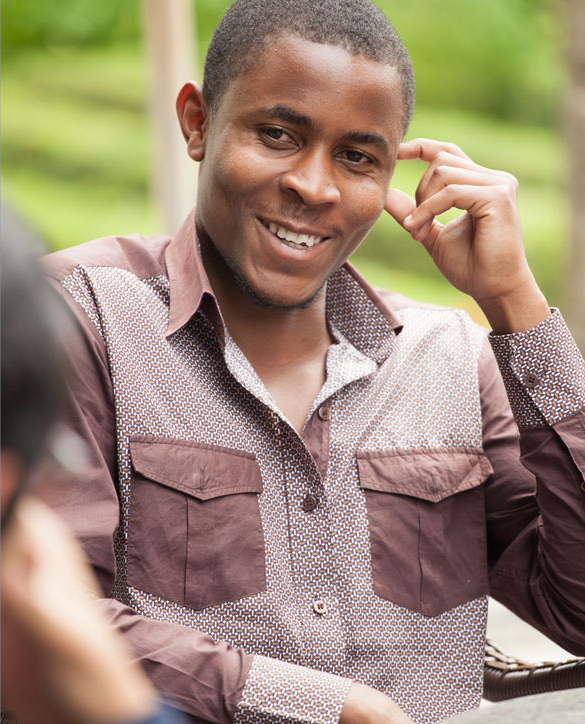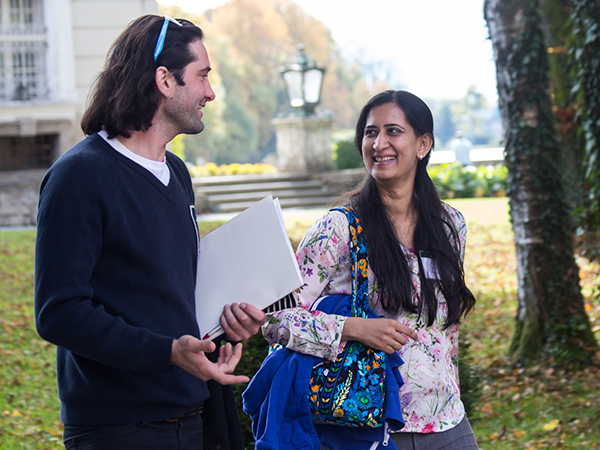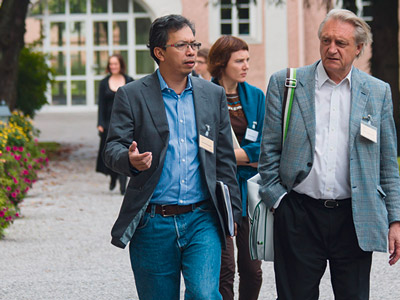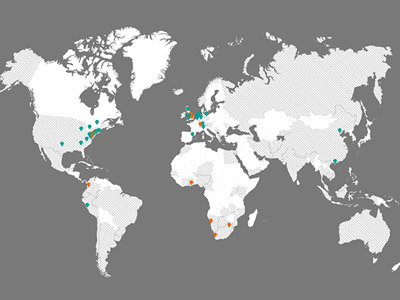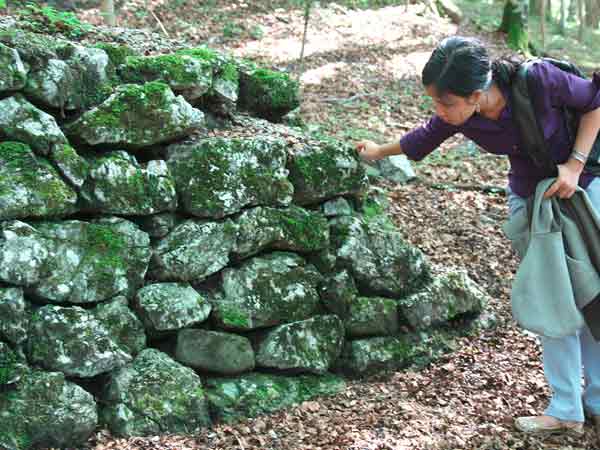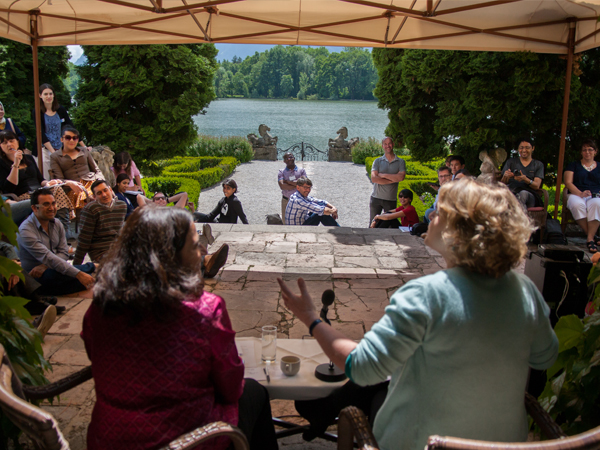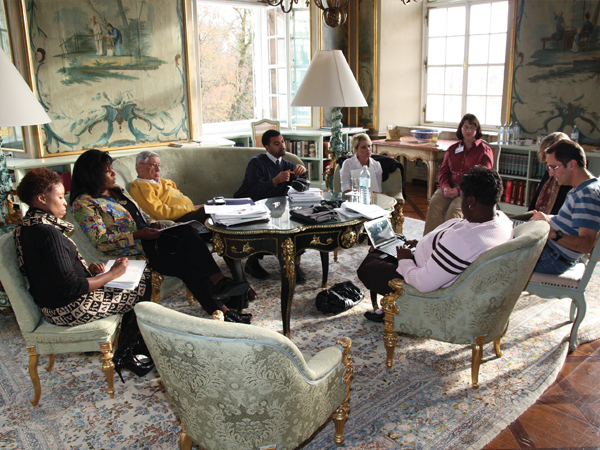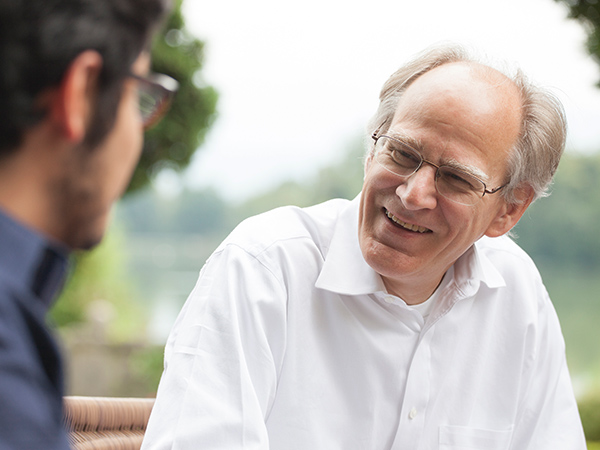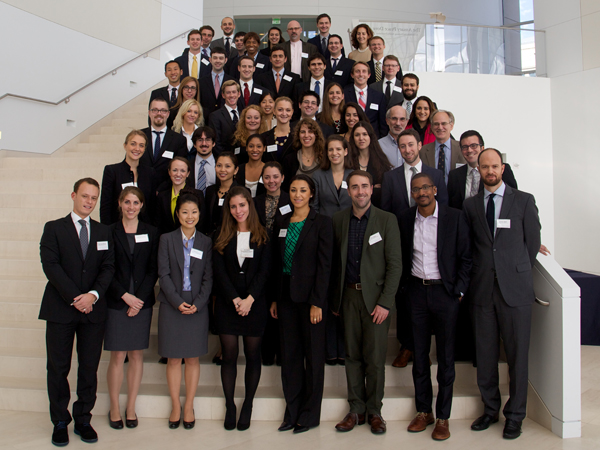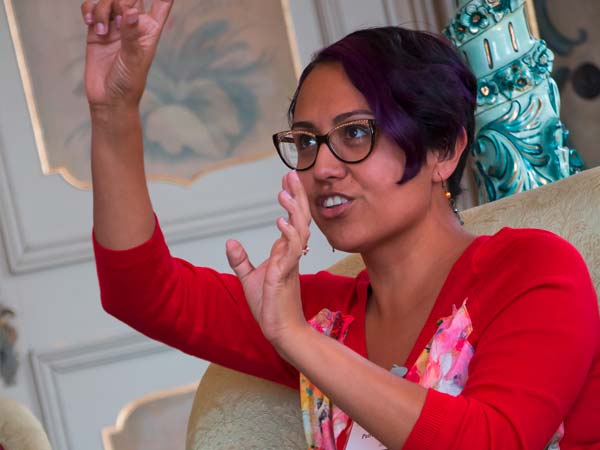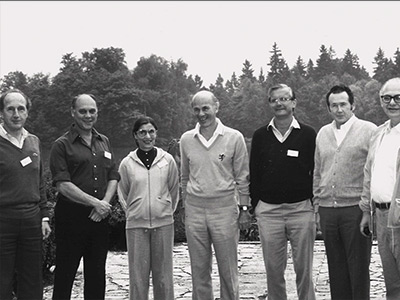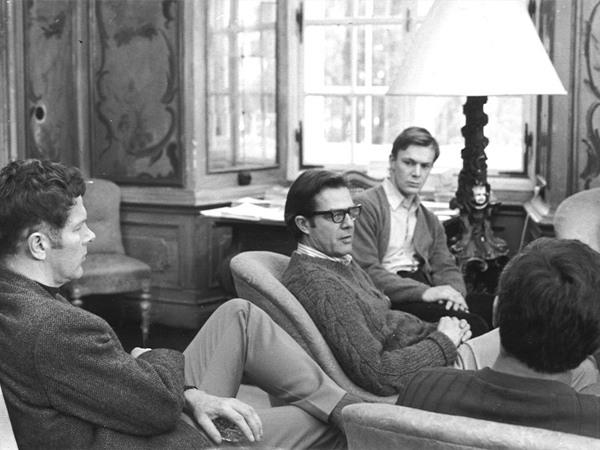Salzburg Academy on Media & Global Change
Media Change Makers
Since helping to launch the program in 2007, Salzburg Global
President Stephen L. Salyer has taken a hands-on role in the
Salzburg Academy on Media and Global Change: helping to
devise the program, delivering lectures and mentoring students.
This year, he met with student representatives from each region
represented at the eighth annual program to find out how the
Academy is helping shape them.
You’re nearly at the end of your time at the
Salzburg Academy on Media and Global
Change; what are your thoughts so far?
Tony: For me the Academy is like dropping
me into a sea. In the sea you have of all
types of creatures; in the Academy you
have all types of people; all manners of
looking at things, articulating whatever
they understand, and basically, for me, it
has changed the way I think. It has taught
me to listen rather than talk. I used to talk a
lot but I have realized that there are people
who think better than me. And for me, that’s
a plus because whenever I find somebody
who does better than me, I listen to them
and pick out something from them. For
me, I think the Seminar has given a voice
to the voiceless. We are the voiceless, truth
be told. What we say used to remain within
our lecture rooms, back home. Anything
you say today goes to 72 different people, 23
different countries. Which other forum will
you get to talk directly to the UNDP officials
if it not this? I think we, as the youth, have
the ideas; we just need a forum to raise our
voices.
Eduardo: I think the term “life changing
experience” is thrown around very lightly,
but this truly is, in a way, very life changing.
It doesn’t just change things like your idea
of diversity, it also changes your idea of
teamwork, for example, because I think most
of us here are kind of leaders and you’re
not really used to working with four other
leaders. So it happens, as Tony says – you
have to shut up for a while and just start
listening. And it also changes the idea where
you can apply your abilities; I had never
thought about working for an NGO before
coming here.
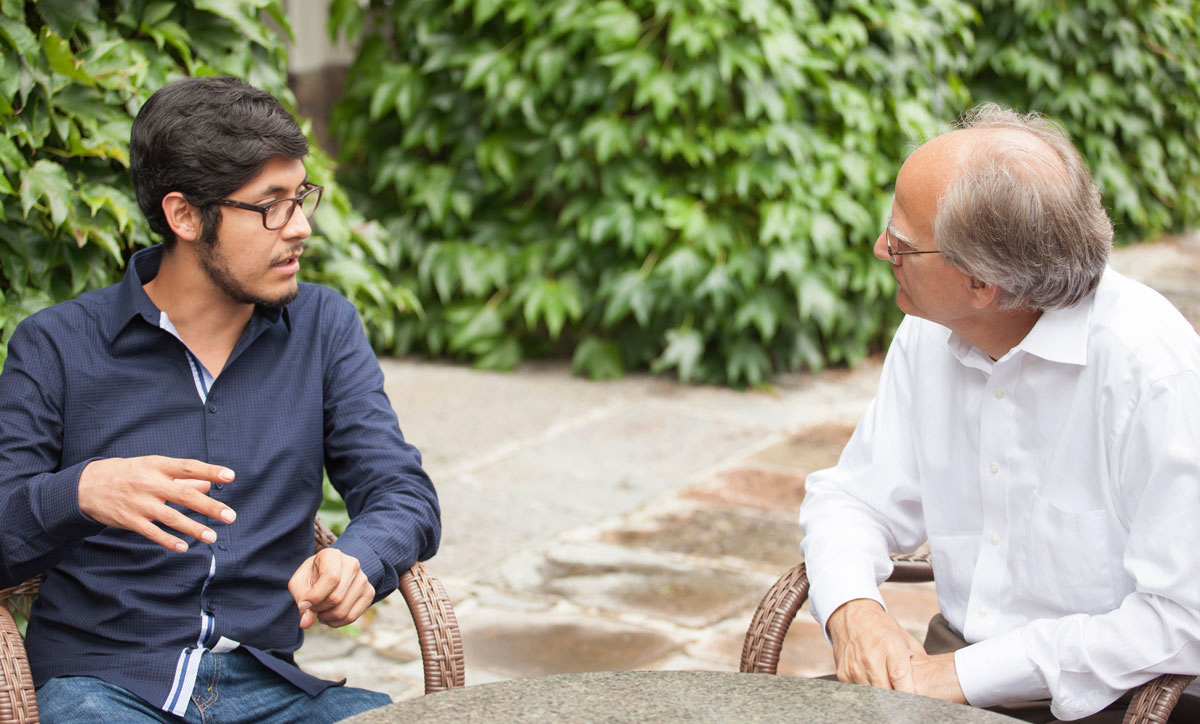
EDUARDO AGUILAR PERALTA
EDUARDO AGUILAR PERALTA
What type of projects are you involved in at home?
Patrick: I have always tried to be involved
in reporting as a means of tackling injustice
and holding power to account. Before I was
here, I spent a month in Vietnam making
a film about unexploded bombs and how
they are still affecting people. There isn’t
enough money coming from places like
the United States, who can spend billions
arming various militaries around the world
and calling it aid, but at the same time only
giving several million pounds to Vietnam to
clean up some of the bombs they left there,
which are still killing people. It’s a story you
really don’t hear about much. That’s the sort
of thing I like to be involved in.
Sarah: Sarah: In America right now there is a
big epidemic of rape and sexual assault on
college campuses. As a survivor of sexual
assault on a college campus and as a survivor
advocate, I have become really involved with
working with Emerson College’s faculty and
administration. I have also worked with
activists on other college campuses and
around the country to get the White House
to take action in creating new bills and in
Congress on a national scale to address the
epidemic of sexual assault. I have created
sexual assault survivor support groups. I
have worked with Emerson to change policy,
not to victim blame in resources that they
hand out to survivors.
We’ve talked a lot here about the power
of shaming and how powerful that can be –
shaming a government that has corruption
in it, for example – and what that can
do to make governments change. If you
shame a university or a college about not
treating survivors of sexual assault and
rape correctly by giving survivors the space
to come forward in a public way, colleges
whip themselves into shape pretty fast and
start making changes. I think the media is a
powerful tool to get the word out there and
to educate the community about issues that
are existing, which may have been pushed
under the rug before. This is something that
I am learning about a lot at the Academy,
and something I am going to use more
and more when I go back to Emerson and
continue in this movement.
Balquees: I have created an online magazine
and a printed magazine. With the magazine
we used to do some social activism. Since I
went to university, I have been engaged more
in community service events and culture
events rather than media. I was the media
coordinator of the Saudi culture club in our
university and two months ago I became
the president of it. We have so many Saudi
students in my university, the American
University of Sharjah, and we are trying
to use them to create social acts, such as a campaign last month. I have had this notebook
since I came here, in which I am writing what
ideas come to mind for using media to create
a change, or to empower some aspects that
I want to change. I am going to take it back
home and encourage more students to get
involved, and make them believe anew that
we can create change.
Eduardo: Right now I have two projects; one
of them is a website where the main objective
is to upload a story, an article talking about a
social issue. It could be a community that is
far away and is isolated in some way; it can
be an oppressed group, even a personal story.
The objective is to crowdfund the stories to
make a small documentary featurette. The
other one, which is a little bit more advanced,
is a website where I put together articles,
interviews, videos talking about the situation
for the LGBT community right now in Mexico.
My aim is to create a community where you
can show people who have never been in
touch with someone openly gay that they are
people just like anyone else.
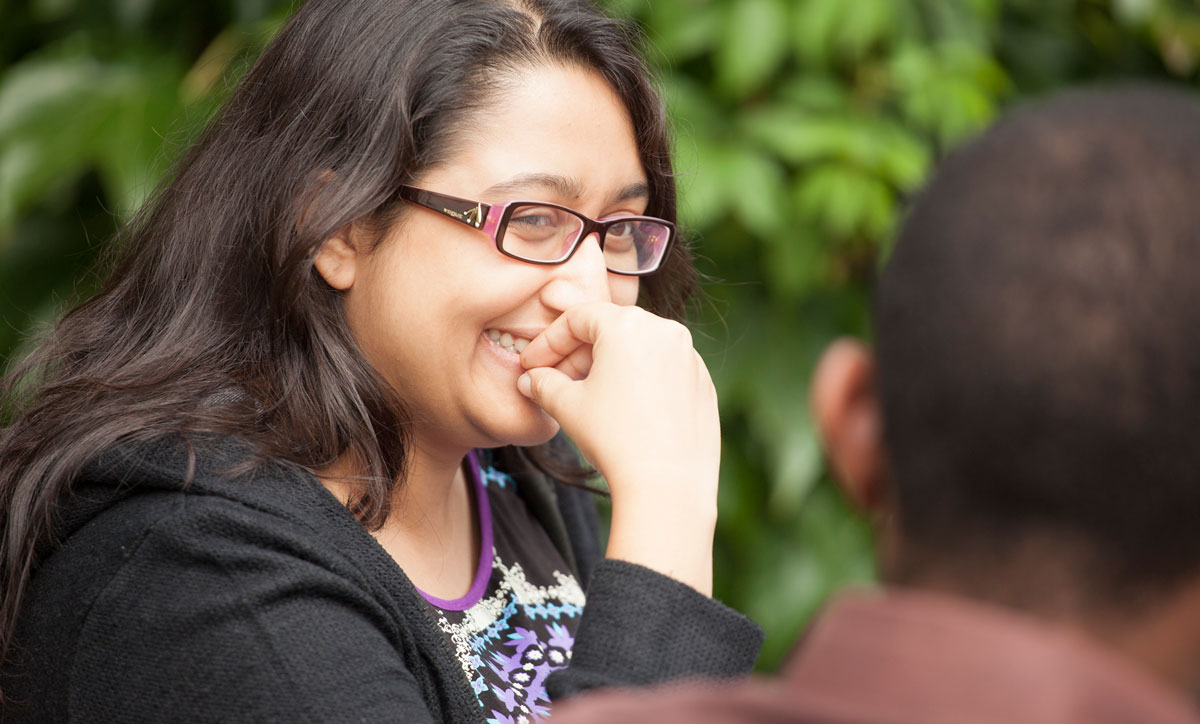
AUPALA GHOSH
AUPALA GHOSH
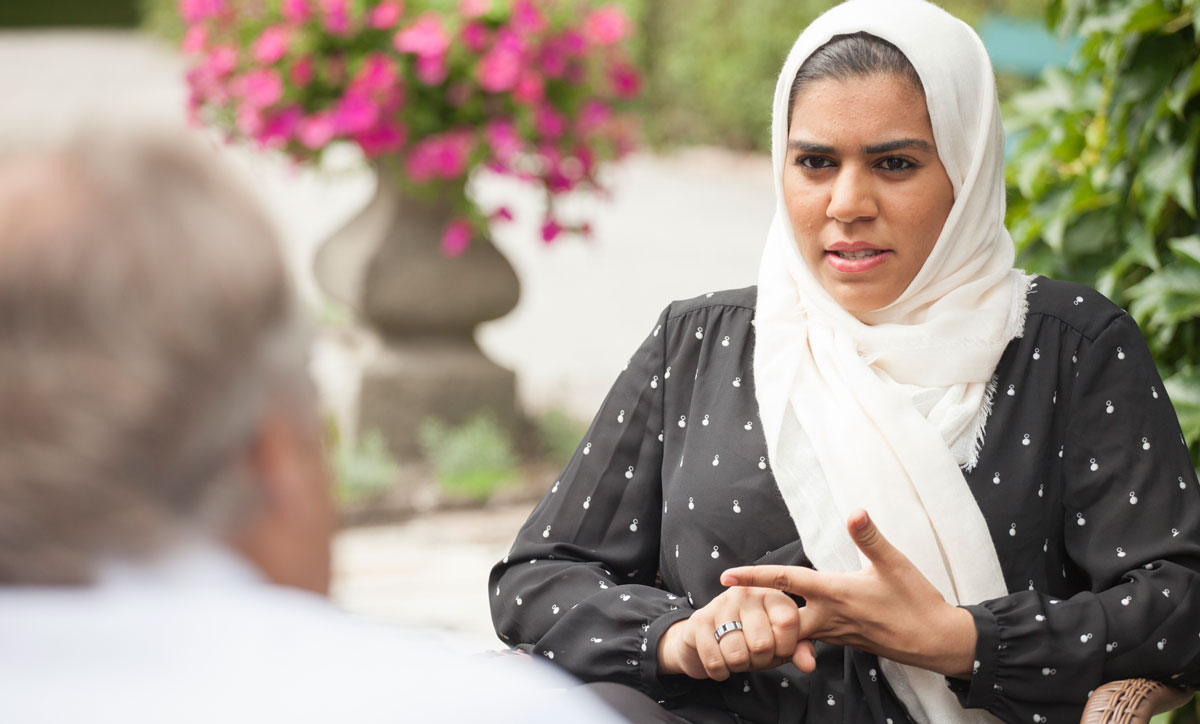
BALQUEES BASALOM
BALQUEES BASALOM
What overriding message will you be taking away from the Academy?
Aupala: If we are going to have change, it will
take small, small steps but it will continue and
continue. I think that right now – where I am
living, the time I’m living in – I want to be one
of those people who do make some change at
least. At a very nominal level, one major thing
I can say in my daily life that will change is
that I will definitely use social media in a very
different way than I used to.
Sarah: I think that the biggest takeaway from
here is the power of a global network. I don’t
think that you can really fix any issues unless
you hear the other side of the issue and unless
you understand what will work in all different
communities, for people of all different
backgrounds. Now I have connections with
people in Mexico, Argentina, Kenya, India, I
will be able to use them as resources. I don’t
think that would have happened unless I came
here.
Patrick: I think that the message is “just go
for it,” do your best, try to change the world,
be that voice for the voiceless, be that person
who is asking awkward questions to the
authorities and do whatever you can to get
those messages out because it can be done, and
we have seen some very inspirational people
who are doing that. To me it’s a complete kick
up the backside, to put it bluntly.
For further information, please see: media-academy.SalzburgGlobal.org
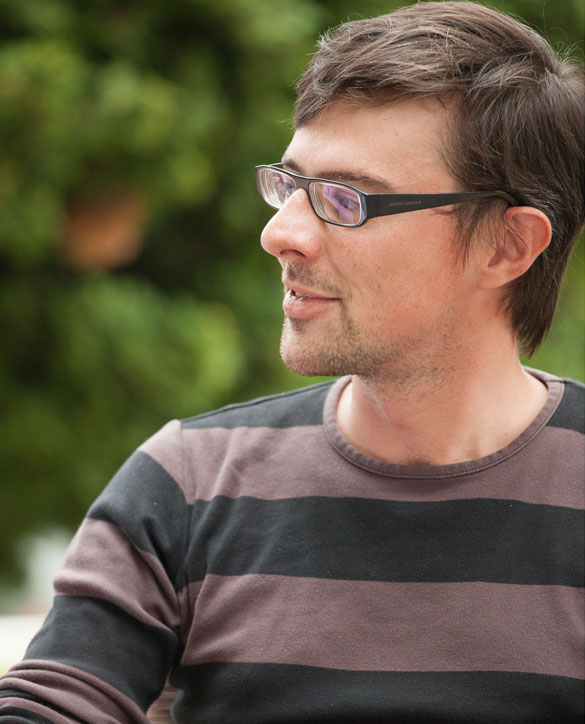
PATRICK WARD
PATRICK WARD
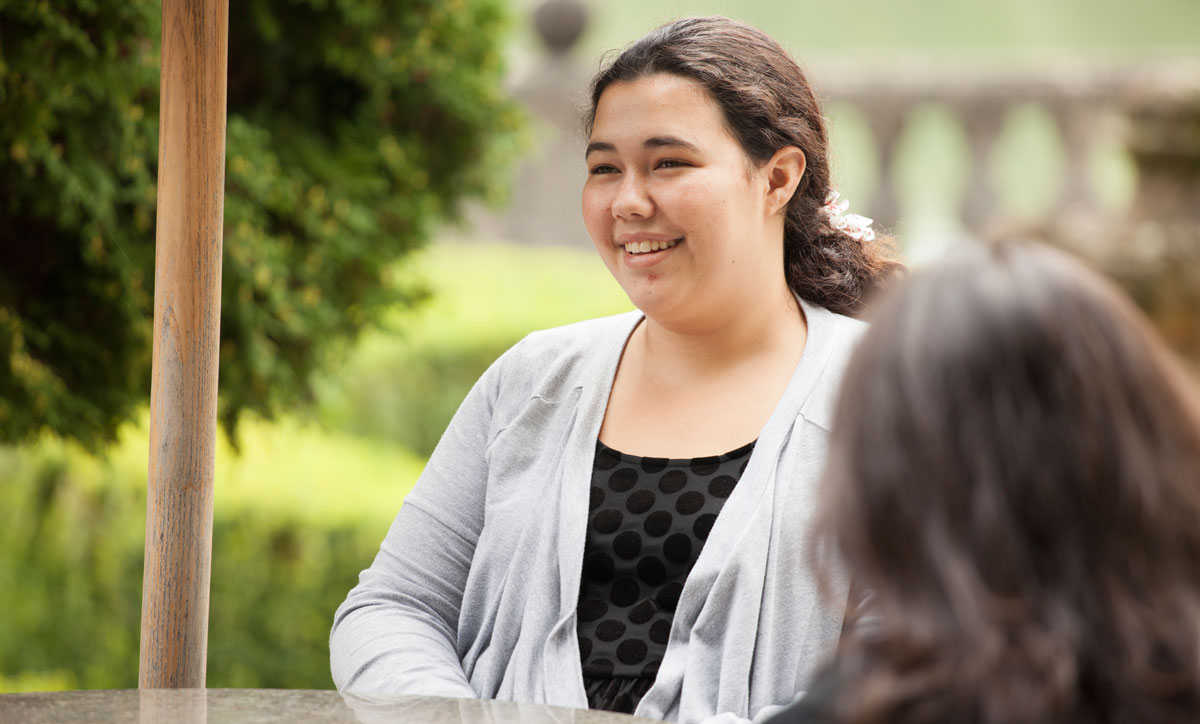
SARAH TEDESCO
SARAH TEDESCO
Profiles
Academy Students
Eduardo Aguilar Peralta is a B.A.
communications with a minor in
journalism student at Universidad
Iberoamericana, Mexico. Eduardo’s
future aspiration is to work as a journalist
for a major media outlet, as well as
establishing his own online news website
that would “avoid the superficial news
stories that fill so many news outlets
these days.”
Balquees Basalom is a B.A. mass
communication student at the American
University of Sharjah, UAE. Balquees has
worked as a news presenter and editorin-
chief for several media outlets. She
dreams of establishing a Saudi Arabian
organization that supports creative minds
and up-and-coming professionals in
various fields, starting with media.
Aupala Ghosh is an M.A. film studies
student at Jadavpur University, India.
Aupala has taken part in several
documentary and short film projects and
gained experience as a director, script
writer, cinematographer and editor. She
is currently working on a research project
on trans-nationality issues among German
Turks and its portrayal in pop-culture and
popular forms of narrative.
Tony Ojwang is a B.A. student of
communications at Daystar University,
Kenya. He is particularly interested in
audio-video production and advertising.
Tony is peace ambassador at Daystar
University and dreams of working in the
media industry as he believes it can bring
significant positive changes for society.
Sarah Tedesco is a B.S. journalism student
at Emerson College, USA. Her minor is
photography and writing. She is currently
president of the Emerson Stopping
Violence Assault Campaign, as well as a
member of the Emerson Peace and Social
Justice Community and of the Society of
Professional Journalists. In the future, she
would like to work in communications for
a non-profit organization that advocates
for the advancement of women globally.
Patrick Ward is an M.A. multimedia
journalism student at Bournemouth
University, UK. Patrick has worked as an
editor of the London Student, the UK’s
largest student newspaper, and as a
reporter for numerous online and print
publications in the UK and India, as well
as assisting on documentaries produced
in the State of Palestine. His goal is to
report on political and social movement
issues from a grassroots level.



